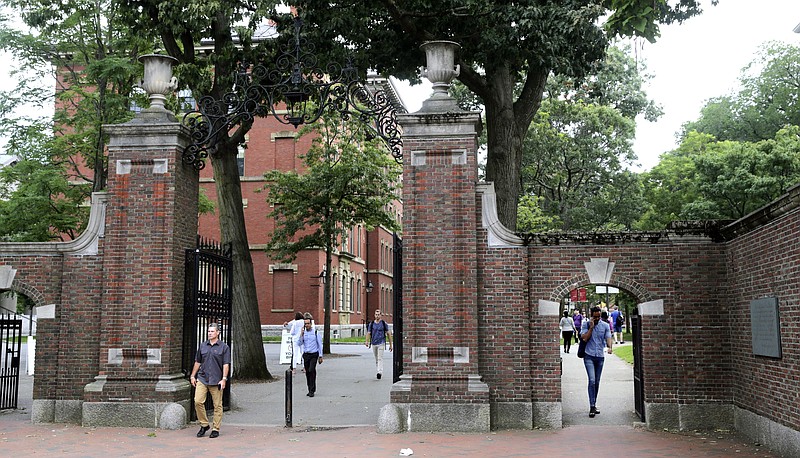BOSTON -- Colleges and universities pushed back Wednesday against the Trump administration's decision to make international students leave the country if they plan on taking classes entirely online this fall, with Harvard University and the Massachusetts Institute of Technology filing a lawsuit to try to block it, and others promising to work with students to keep them on campus.
The Immigration and Customs Enforcement agency notified colleges Monday that international students will be forced to leave the U.S. or transfer to another college if their schools operate entirely online this fall. New visas will not be issued to students at those schools, and others at universities offering a mix of online and in-person classes will be barred from taking all of their classes online.
The guidance says international students won't be exempt even if an outbreak forces their schools online during the fall term.
In a statement, the State Department said that international students are welcome in the U.S., but the policy "provides greater flexibility for nonimmigrant students to continue their education in the United States, while also allowing for proper social distancing on open and operating campuses across America."
[CORONAVIRUS: Click here for our complete coverage » arkansasonline.com/coronavirus]
The guidance was released the same day Harvard announced that it would be keeping its classes online this fall. Harvard says the directive would prevent many of Harvard's 5,000 international students from remaining in the U.S.
Harvard President Lawrence Bacow said the order came without notice and that its "cruelty" was surpassed only by its "recklessness."
"It appears that it was designed purposefully to place pressure on colleges and universities to open their on-campus classrooms for in-person instruction this fall, without regard to concerns for the health and safety of students, instructors, and others," Bacow said in a statement Wednesday. "This comes at a time when the United States has been setting daily records for the number of new infections, with more than 300,000 new cases reported since July 1."
Universities across the U.S. say the more than 1 million international students have an important place in their communities. Many schools have also come to depend on revenue from international students, who typically pay higher tuition rates.
It creates an urgent dilemma for thousands of international students who became stranded in the U.S. last spring after the coronavirus forced their schools to move online. Those attending schools that are staying online must "depart the country or take other measures, such as transferring to a school with in-person instruction," according to the guidance.
"They may have just resigned leases on apartments ... Our university starts in six weeks or seven weeks. They have been planning to be here, they have already spent money so it's really devastating," said University of Southern California lecturer Melanie Johnson.
The university last week reversed course on a plan to bring students to campus, saying classes will be hosted primarily or exclusively online. Georgetown University in Washington, D.C., and Rutgers in New Jersey this week made similar announcements as virus cases surge.
Johnson worries that even students who start off on campus will be prevented by travel restrictions from going home if a surge forces classes online midsemester.
"What if a student like that, who for no fault of their own, finds themselves here without their classes and ends up in a detention center or deported?" she said.
Professors fielded messages from frantic students seeking assurances that at least some of their courses would be face-to-face.
The lawsuit, filed in Boston's federal court, seeks to prevent federal immigration authorities from enforcing the rule. The universities contend that the directive violates the Administrative Procedures Act because officials failed to offer a reasonable basis justifying the policy and because the public was not given notice to comment on it.
The White House's press secretary on Wednesday sidestepped a question about whether it was designed to pressure colleges to reopen their campuses, saying the policy "speaks for itself."
"You don't get a visa for taking online classes from, let's say, University of Phoenix, so why would you if you were just taking online classes generally?" Kayleigh McEnany said at a briefing.
An online petition in favor of letting international students stay if classes were online had drawn more than 220,000 signatures by Wednesday.

